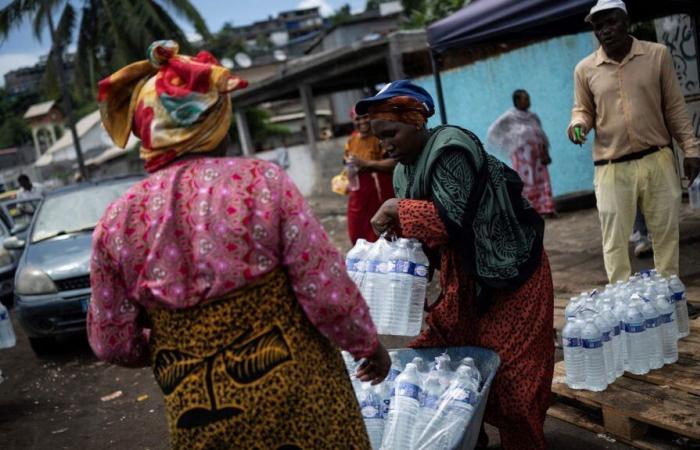While the drinking water and sanitation distribution network is out of service, consumption by residents of dirty or polluted water could not only lead to gastroenteritis, but also cases of typhoid fever, leptospirosis or more cholera.
Published on 17/12/2024 07:41
Updated on 17/12/2024 08:01
Reading time: 3min

In Mayotte, while Cyclone Chido ravaged the island on Saturday, three days later, the situation is, Tuesday December 17, “chaotic” and the human toll continues to “to get heavier”announces the mayor of Mamoudzou, capital of Mayotte. Ambdilwahedou Soumaila reported Tuesday morning “22 dead, 48 seriously injured and 1,421 lightly injured”reporting the latest data collected from the Mayotte hospital center.
Health authorities now fear the risk of outbreaks of epidemics. The drinking water distribution and sanitation network is out of service, and the risk is the spread of bacteria or viruses via unclean water taken from wells or rivers. Consumption by residents of this dirty or polluted water could not only lead to gastroenteritis, but also cases of typhoid fever, leptospirosis (linked to rats) or even cholera. Cholera has already affected more than 200 people in Mayotte between February and July 2024.
The fever, intestinal problems and severe dehydration linked to this bacterially transmitted disease require rapid diagnosis and treatment. In the event of an epidemic resumption, it would be a major health challenge requiring medical reinforcements.
Mayotte had managed to stem this cholera epidemic for four months. It was able to be stopped this summer thanks to the administration of antibiotics and the vaccination of 30,000 people. But an effective and sustainable fight also requires the reliability of the drinking water network and minimum hygiene conditions for the population, which can no longer be guaranteed immediately.
Another concern, work by the Pasteur Institute has recently established that the strain of cholera which circulated in Mayotte has the particularity of being more virulent than average, with a risk of resistance to treatments. Furthermore, the heat could further complicate the situation. It is currently between 25 and 30 degrees in Mayotte. Beyond the problem of access to drinking water, the island is also entering the mosquito season, with a risk of transmitting viruses such as dengue or chikungunya to the population. These diseases cause more or less pronounced symptoms: fever, headaches and joint pain. If cases increase in the coming weeks, caring for the most affected patients will further increase the pressure on an already exhausted health system.








